When going through cancer treatment, nutrition becomes more important than ever. You might struggle with weight loss, muscle weakness and poor appetite, which can make recovery harder. That's why protein powder is often recommended as a part of supportive care.
But not all protein powders are created equal. According to a study in the Journal of Cachexia, Sarcopenia and Muscle (2019), cancer patients with higher protein intake had better outcomes, including improved muscle strength and overall quality of life.
Why is protein important for cancer patients?
Protein is not just about muscles; it's very important for repairing tissues damaged by chemotherapy or radiation. It supports immune function and also maintains energy levels. Without enough protein, recovery truly slows down, infections become more likely, and even your fatigue worsens.
Challenges with protein intake during cancer treatment
You might find it difficult to eat enough protein-rich foods because of loss of appetite, taste changes, and difficulty swallowing. You might even have some digestive issues, such as nausea or mouth sores. This is where protein powders come into the picture. They provide easy-to-digest concentrated nutrition and a small serving.
Types of protein powders commonly used
Whey protein is fast-digesting and rich in essential amino acids, especially leucine, which is great for muscle repair. Casein protein is also made from milk, and it is slow-digesting and supports overnight recovery. Soy protein is plant-based, and you can expect a complete protein, but it might interfere with some hormone-sensitive cancers if overused.
Rice or hemp protein is also plant-based and suitable for digestive issues. Collagen protein supports skin and connective tissue health, but not a complete protein for recovery. If you're a cancer patient, whey protein is completely recommended in concentrate or isolate form because it is rich in branched chain amino acids that support immune function and muscle repair.
What makes whey protein completely safe for cancer patients?
Whey Protein concentrate is widely studied and generally considered safe for cancer patients. It basically contains immunoglobulins that might support your immune system. It is easily digested and absorbed, even for patients with reduced appetite.
It helps in preserving lean body mass, which is important for strength and energy. A study in Nutrition and Cancer (2013) showed that whey protein supplementation improved glutathione levels (a key antioxidant), which may help the body cope with oxidative stress from cancer treatment.
How does protein powder support cancer recovery?
Protein powder maintains the muscle mass that prevents muscle wasting caused by treatment. It supports tissue repair after surgery or therapy. At the same time, you need to know that protein powder helps reduce fatigue by providing steady nutrition and boosts energy.
It also strengthens immunity as it provides amino acids that support white blood cells. Protein powders improve treatment tolerance as well as nourish patients who handle chemotherapy and radiation really well.
How to choose the right protein powder?
When selecting a protein powder for cancer patients, you need to consider digestibility and choose something gentle on your stomach. You must avoid products with artificial sweeteners or additives or fillers.
Look for complete amino acid profiles as protein quality matters. Ensure that the protein powder is tested and made from high-quality sources. Vitalcell Protein powder checks all these boxes. It is clean, effective and formulated for cancer management nutrition.
How to use protein powder safely?
You need to take at least 20 to 30 grams per serving, but it should be customised to your weight and doctor's recommendation. You can consume the protein powder between meals, which is a meal replacement, when your appetite is completely low.
Mix it with water, milk or smoothies for easy consumption. Daily intake is important for long-term benefits. Always consult your healthcare experts before starting supplements, especially during cancer treatment.
Common concerns about protein powders and cancer patients
Can protein powder make cancer grow faster? No, this is a common myth. Cancer cells grow because of uncontrolled cell cycles, not because of protein intake. In fact, protein deficiency weakens your body, making recovery harder.
Can you take protein powder instead? Yes, if you have lactose intolerance or prefer plant-based diets, then you must choose plant protein.
Which is the best and safest protein powder brand for cancer management?
Vitalcell protein powder is one of the specialised whey protein concentrates designed to support cancer patients by providing the best quality protein for muscle maintenance. It also supports immune health through bioactive compounds, offering an easy-to-digest formula suitable for a weak appetite. It is not just a supplement; it's a nutritional support system during one of the toughest health journeys.
Conclusion
So above all, you need to know that protein is not optional for cancer patients; it's very important. Whether you are undergoing chemotherapy, radiation or recovering post-surgery or body needs extra nutrition to stay strong.
The protein powder offers a safe, effective and clinically reliable way to meet all the requirements. By combining red paired with proper nutrition, including high-quality protein supplementation, you can improve recovery strength and overall well-being.
If you or your loved one is going through cancer treatment, don't overlook the power of nutrition. Choosing the right protein powder can make a meaningful difference in recovery.


